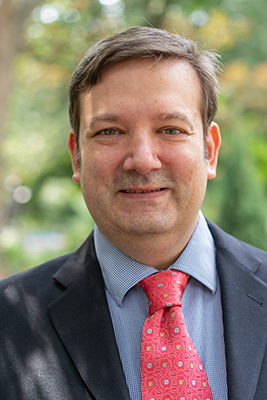Dickinson College
Faculty Profile
Kamaal Haque
Associate Professor of German (2008)Contact Information
on sabbatical Fall 2025
Bosler Hall
717-245-1283
Bio
His research interests include German film, the literature and culture of the German-speaking Alps, and environmental humanities. He has published on such diverse topics as the German mountain film, Swiss literature, the poetry of Goethe, and Muslim minorities in Germany today. In addition to courses at all levels of German language and culture, he has taught recent courses such as The Mountain in the German Cultural Imagination, Minority Cultures in the German Context and Modern German Film.
Education
- B.A., Drew University, 1997
- M.A., Washington University in St. Louis, 2000
- Ph.D., 2006
